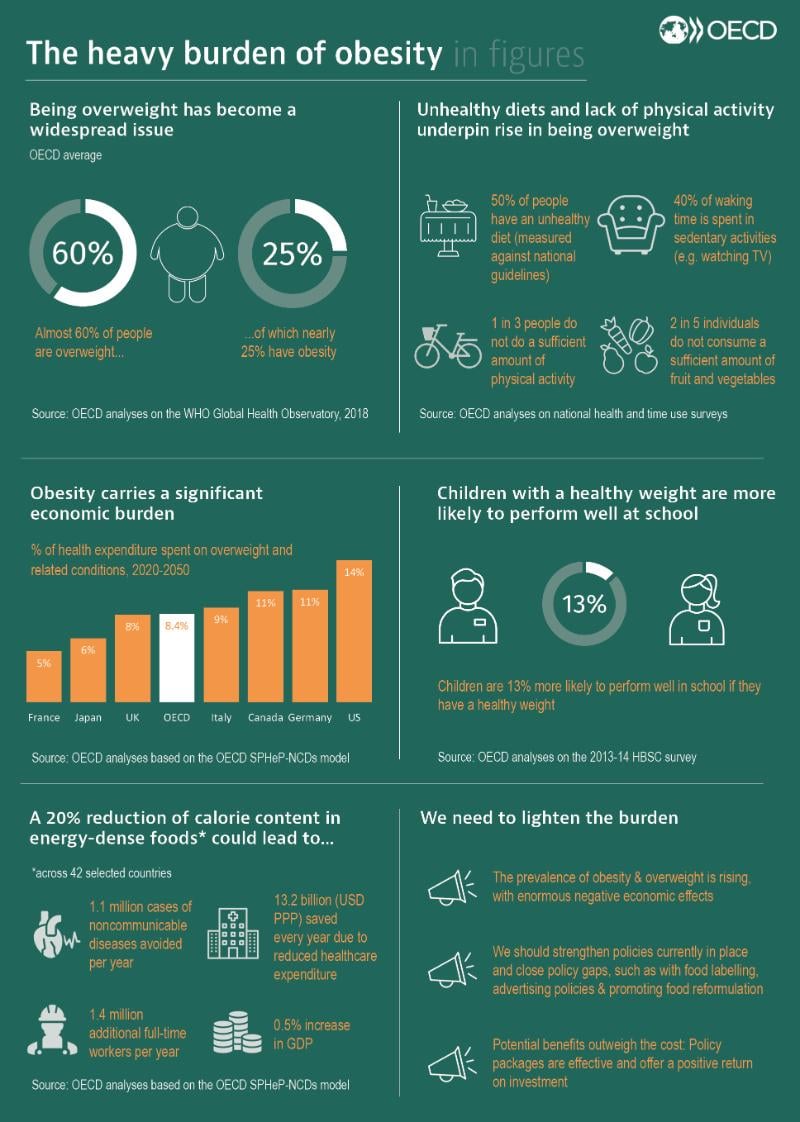Health for Everyone?
Social Inequalities in Health and Health Systems
I still don't know why do we talk about inequalities, I've always thought that we should care about differences. The word inequality drives your mind towards equality, and we all know that this will not happen. Therefore, there are differences that are unfair and avoidable, and these are the ones we have to be concerned.
And when we talk bout social determinants, maybe we should focus on commercial determinants and it would help. Why commercial? Because these factors are more actionable compared to others.
You will not find all these reflections in the new report by
OECD. Anywasy it is worth reading to confirm it, though the perspective is the standard one (Marmot) and not
new.
What you really have to read is the notice at the begining of each chapter that says:
Note by Turkey:
The information in this document with reference to “Cyprus” relates to the southern part of the Island. There is no single authority representing both Turkish and Greek Cypriot people on the Island. Turkey recognises the Turkish Republic of Northern Cyprus (TRNC). Until a lasting and equitable solution is found within the context of the United
Nations, Turkey shall preserve its position concerning the “Cyprus issue”.
Note by all the European Union Member States of the OECD and the European Union:
The Republic of Cyprus is recognised by all members of the United Nations with the exception of Turkey. The information in this document relates to the area under the effective control of the Government of the Republic of Cyprus.
Shame on Turkey. This notice is an example of the decision that needs to take the OECD urgently: to exclude Turkey from his organization. It is really unacceptable what Turkey has done and it is doing in Cyprus. Europe and OECD are avoiding the conflict saying "The information in this document relates to the area under the effective control of the Government of the Republic of Cyprus". The conflict should be solved as soon as possible with the withdrawal of Turkey from Cyprus. That's all.
PS. What I said in the
blog on Cyprus 8 years ago:
PS. Carta de lluny. Tot d'una passejant pel carrer Ledra vaig topar amb una frontera. Em trobava a una capital europea, dividida, envaïda. L'illa de Xipre va quedar escapçada el 1974. Aquella invasió va provocar 200.000 desplaçats que van perdre-ho tot fins el dia d'avui. El genocidi cultural i el saqueig posterior encara dura. He tingut ocasió de visitar dues exposicions que mostren l'espoli que s'està produint a la regió de Morphou (pot visitar-se al Banc de Xipre) i el rescat d'algun botí d'antiquari de l'any passat a Alemanya (Makarios Foundation). Vaig quedar tocat en veure-ho. Tresors artístics destruits per tal que la cultura d'altres desaparegui definitivament. Molt fort.
La situació política és delicada després de l'explosió de l'arsenal de Limassol a mitjans de juliol. Vam assistir a concerts on l'electricitat la subministràven amb generadors, i a Limassol moltes botigues no tenien llum. Tenen una bombolla urbanística com una catedral i està a punt d'esclatar.
L'escapada cap al Nord va tenir tres destins: Salamina, Famagusta i Kyrenia. Arribar a Salamina suposava fer un visat i assegurança del cotxe però el difícil era arribar-hi perquè no hi havia cap cartell. Salamina és un complex interessant però descuidat i menystingut. Famagusta té una mescla que em va sobtar visualment, catedrals gòtiques escapçades amb minarets. Havia de ser extraordinària però s'han encarregat deliberadament de destruir-la, s'observa clarament quan passeges. Kyrenia va ser un descans, lloc acollidor. Al port amb una calor sofocant vam passar una bona estona. Vam oblidar per pocs moments el país envaït on ens trobàvem.
Crec que els governs que faciliten, impulsen o s'inhibeixen davant del genocidi cultural haurien de ser exclosos del circuit, pena d'infàmia, cosa que per ara no fa ningú.
Hem tingut ocasió de visitar Pafos, els Troodos i les esglésies patrimoni de la humanitat, Kourion, i molts altres llocs. El menjar i en especial la qualitat del peix és envejable. Un bon record i una experiència més per a compartir.



